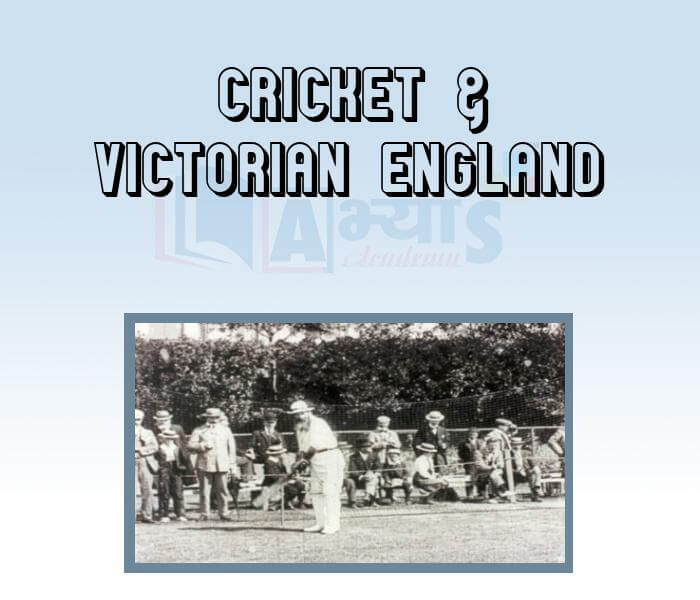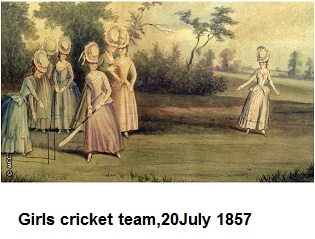Cricket and Victorian England













Cricket and Victorian England
Cricket and Victorian England: The organisation of cricket in England reflected the nature of English Society. The rich, who could afford to play it for pleasure, were called amateurs and the poor, who played it for a living, were called professionals. The wages of professionals were paid by patronage or subscription or gate money.
Gentlemen and the Players: The game was seasonal and it did not offer employment for the whole year. Thus, professionals worked as miners or in other forms of working class employment.
Introduction of Cricket to Boys School: It is often said that the 'Battle of Waterloo was won on the playing fields of Eton'. It means that Britain's military success was based on the values taught to school boys in its public schools.

Sports for Girls: Till the end of the 19th century, sports and vigorous exercise for girls were not a part of their education in Britain. Croquet which was a slow-pace, elegant game considered suitable for women, especially of the upper class. By the 1890s, schools began acquiring playgrounds and allowing girls to play some of the games which were earlier considered as male games.

Students / Parents Reviews [10]
A marvelous experience with Abhyas. I am glad to share that my ward has achieved more than enough at the Ambala ABHYAS centre. Years have passed on and more and more he has gained. May the centre flourish and develop day by day by the grace of God.

Archit Segal
7thAbout Abhyas metholodology the teachers are very nice and hardworking toward students.The Centre Head Mrs Anu Sethi is also a brilliant teacher.Abhyas has taught me how to overcome problems and has always taken my doubts and suppoeted me.

Shreya Shrivastava
8thMy experience with Abhyas is very good. I have learnt many things here like vedic maths and reasoning also. Teachers here first take our doubts and then there are assignments to verify our weak points.

Shivam Rana
7thMy experience with Abhyas academy is very good. I did not think that my every subject coming here will be so strong. The main thing is that the online tests had made me learn here more things.

Hiya Gupta
8thBeing a parent, I saw my daughter improvement in her studies by seeing a good result in all day to day compititive exam TMO, NSO, IEO etc and as well as studies. I have got a fruitful result from my daughter.

Prisha Gupta
8thIt has a great methodology. Students here can get analysis to their test quickly.We can learn easily through PPTs and the testing methods are good. We know that where we have to practice

Barkha Arora
10thIt was good as the experience because as we had come here we had been improved in a such envirnment created here.Extra is taught which is beneficial for future.

Eshan Arora
8thMy experience was very good with Abhyas academy. I am studying here from 6th class and I am satisfied by its results in my life. I improved a lot here ahead of school syllabus.

Ayan Ghosh
8thIt was a good experience with Abhyas Academy. I even faced problems in starting but slowly and steadily overcomed. Especially reasoning classes helped me a lot.

Cheshta
10thOne of the best institutes to develope a child interest in studies.Provides SST and English knowledge also unlike other institutes. Teachers are co operative and friendly online tests andPPT develope practical knowledge also.
